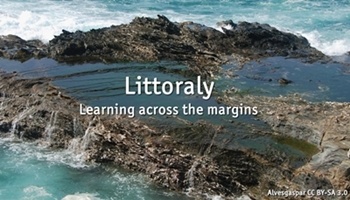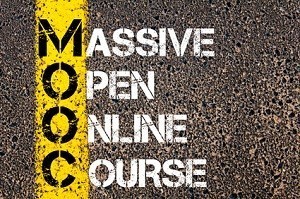Search for...
#mooc Bookmarks
Published Bookmarks
 Getting to Grips with MOOCs
Getting to Grips with MOOCs
Donald H Taylor’s recently updated blog on MOOCs inspired me to write about what we’re doing with MOOCs in the Diplomatic Academy.
 CONSTRUCTIVE CRITICISM OF COURSERA
CONSTRUCTIVE CRITICISM OF COURSERA
Well it’s taken me over 3 and a half years, but I’ve finally completed another MOOC... this was "e-Learning Ecologies: Innovative Approaches to Teaching and Learning for the Digital Age by the University of Illinois on the Coursera platform.
 The 50 Most Popular MOOCs of All Time - examsummary
The 50 Most Popular MOOCs of All Time - examsummary
Unlike regular college/ university courses, MOOCs can attract many thousands of enrollees around the world. They can come in the form of active course sessions with participant interaction, or as archived content for self-paced study. MOOCs can be free, or there can be a charge – either on a subscription basis or a one-time charge. Free MOOCs sometimes have a paid “verified certificate” option.There are now thousands of MOOCs available worldwide from several hundred colleges, universities and o
 Personal Learning Ecosystems as an “Internet of Badge Things”
Personal Learning Ecosystems as an “Internet of Badge Things”
This post begins to question the notion of Open Badges as scalable micro-credentials. How modular are they? Are they like lego blocks or are they fractal and chaotic? How far can we push the notion of modularity?
The point of the post is the Draft Ecosystem Scaling Chart towards the bottom - It goes from nano through micro to giga...
The point of the post is the Draft Ecosystem Scaling Chart towards the bottom - It goes from nano through micro to giga...
 Massive Open Online Courses – What are They?
Massive Open Online Courses – What are They?
Want to know about Massive Open Online Courses, and how they're changing the e-Learning landscape? This article will give you the details you need to know.
 MOOCs in Workplace Learning - Part 5: Skills Learners Need Today
MOOCs in Workplace Learning - Part 5: Skills Learners Need Today
While the title of the post specifies MOOCs, the skills and mindsets I have explored in the post are, IMHO, required by all to survive and thrive in the digital and connected world. And participating in MOOCs could well be one of the ways to inculcate and hone the skills. I have been writing about MOOCs in the context of workplace learning from different perspectives for some time now.
 MOOCs in Workplace Learning - Part 4: Role in Corporate Universities
MOOCs in Workplace Learning - Part 4: Role in Corporate Universities
This post, as the title says, is about Corporate Universities (CU) and the role of MOOCs therein. My intention was to set the context for why I feel CUs are set to make a comeback.
 MOOCs in Workplace Learning - Part 3: Launching a MOOC
MOOCs in Workplace Learning - Part 3: Launching a MOOC
This is a continuation of my MOOC series and also a post that draws a lot from the #MSLOC430 Community and MOOC ("C" type) that I am participating in -- the open section of the graduate course in the Master's Program in Learning and Organizational Change at Northwestern University.
 MOOCs In Workplace Learning – Part 2: Designing a MOOC
MOOCs In Workplace Learning – Part 2: Designing a MOOC
Inge de Waard describes MOOCs thus in her Master’s Thesis: “MOOC is above all referring to a pedagogical model with independent learners, access to information, opportunity to create emerging, spontaneous, yet not directed learning communities, etcetera. As such the term MOOC can be seen as a new educational term.” ~Analyzing the Impact of Mobile Access on Learner Interaction in a MOOC
 MOOCs In Workplace Learning – Part 1: Some Points To Consider
MOOCs In Workplace Learning – Part 1: Some Points To Consider
MOOCs – you can love them or hate them but you can definitely not ignore them. Despite countless stats on MOOC dropout rates, MOOCs are appearing everywhere. And IMHO, we will continue to see this phenomenon rise.
Submit Bookmark




